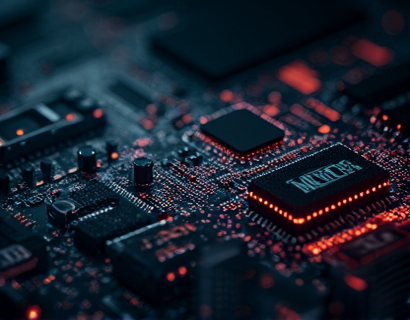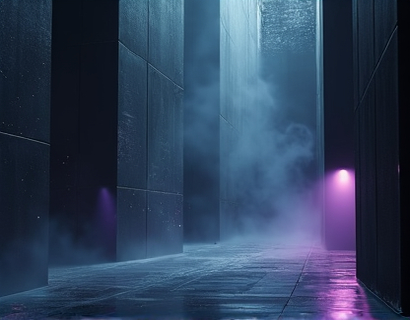Crafting Secure and Personalized Online Memorials with AI and Blockchain
The digital age has transformed numerous aspects of our lives, including how we remember and honor our loved ones who have passed away. Traditional methods of creating memorials, such as physical monuments or albums, are being complemented by innovative digital solutions. This article explores the intersection of artificial intelligence (AI) and blockchain technology in crafting secure and personalized online memorials, offering a unique and meaningful way to create lasting tributes for those we cherish.
In recent years, the demand for digital memorials has surged, driven by bereaved families and individuals seeking modern and heartfelt ways to commemorate their loved ones. The need for secure, personalized, and enduring online spaces to honor memories has led to the development of advanced platforms that integrate cutting-edge technologies like AI and blockchain. These platforms aim to provide a unique and meaningful experience, ensuring that the tributes created are both secure and deeply personal.
Understanding the Need for Digital Memorials
The transition to digital memorials is rooted in the evolving preferences and needs of modern mourners. Traditional memorials, while cherished, have limitations in terms of accessibility, preservation, and personalization. Digital memorials offer a solution by providing a space that can be accessed from anywhere in the world, updated easily, and tailored to reflect the unique personality and life of the deceased.
Moreover, digital memorials can incorporate multimedia elements such as photos, videos, music, and written tributes, creating a rich and immersive experience for visitors. This multifaceted approach allows for a more comprehensive and emotional connection to the memory of the loved one, making the memorial a living tribute that evolves over time.
AI in Memorial Creation
Artificial intelligence plays a pivotal role in enhancing the creation and management of digital memorials. AI algorithms can analyze and curate content, ensuring that the memorial reflects the essence of the deceased's life. For instance, AI can organize photos chronologically, identify key themes in the deceased's life, and even generate personalized messages or quotes based on their writings or social media activity.
One of the most significant benefits of AI in this context is its ability to learn and adapt over time. As more content is added to the memorial, AI can continuously refine and enhance the experience, making it more relevant and engaging for visitors. This dynamic nature ensures that the memorial remains a living tribute, growing and evolving as new memories are created and shared.
Blockchain for Security and Authenticity
Blockchain technology, known for its role in cryptocurrencies, offers a robust framework for ensuring the security and integrity of digital memorials. By leveraging blockchain, these platforms can provide a decentralized and tamper-proof environment where memorial data is stored securely and transparently.
Each piece of content added to the memorial, from photos to written tributes, can be recorded as a block in the blockchain. This creates an immutable record that cannot be altered or deleted, ensuring that the memorial remains authentic and unaltered over time. Additionally, blockchain's cryptographic security features protect sensitive information and prevent unauthorized access, providing peace of mind for those who create and visit these digital tributes.
Personalization Through AI and Blockchain
The combination of AI and blockchain enables a level of personalization that is unparalleled in traditional memorial creation. AI can assist in curating a personalized experience by suggesting content, organizing memories, and even generating custom designs for the memorial interface. For example, AI can analyze the deceased's social media profiles to identify favorite quotes, hobbies, and interests, which can then be incorporated into the memorial in a meaningful way.
Blockchain, on the other hand, ensures that these personalized elements are securely stored and managed. Each user has control over their contributions, and the decentralized nature of blockchain means that no single entity has complete control over the memorial. This balance of personalization and security creates a truly unique and trustworthy platform for honoring loved ones.
User Experience and Accessibility
The user experience is a critical aspect of any digital memorial platform. The integration of AI and blockchain must not only enhance the backend security and personalization but also provide an intuitive and user-friendly interface for all users. The platform should be designed to accommodate users of all technical backgrounds, ensuring that creating and managing a digital memorial is a straightforward and emotional process.
Accessibility is another key consideration. The platform should be accessible on various devices, including smartphones, tablets, and computers, allowing users to visit and interact with the memorial from anywhere. This flexibility ensures that loved ones can pay their respects and add memories at any time, fostering a continuous and evolving tribute.
Preservation of Memories
One of the most compelling aspects of digital memorials is their ability to preserve memories for future generations. Unlike physical memorials, which can deteriorate over time, digital memorials can be maintained and preserved indefinitely. The use of blockchain ensures that the data is stored securely and remains accessible even if the original platform evolves or is updated.
AI can further enhance preservation by automatically backing up content, detecting and repairing corrupted files, and ensuring that the memorial remains functional and visually appealing. This long-term preservation is crucial for ensuring that the memories and legacies of our loved ones are not lost to time.
Community and Support
Creating a digital memorial is not just a solitary task; it often involves a community of family, friends, and acquaintances who contribute to the tribute. The platform should facilitate this community aspect by allowing multiple users to collaborate on the memorial, adding content, and sharing memories in a controlled and respectful environment.
AI can assist in managing this community by moderating content, suggesting contributors, and providing tools for coordination. Blockchain ensures that all contributions are recorded transparently and securely, fostering trust and cooperation among users. This collaborative approach not only enriches the memorial but also provides emotional support to those who are grieving.
Ethical Considerations and Privacy
As with any technology involving personal data, ethical considerations and privacy are paramount. The platform must adhere to strict data protection standards, ensuring that all personal information is handled with the utmost care. Users should have full control over their data, including the ability to manage privacy settings and decide what content is shared publicly and what remains private.
Transparency in how data is used and stored is essential. The platform should provide clear and understandable privacy policies, and users should be informed about the security measures in place to protect their memories and information. By prioritizing privacy and ethical practices, the platform can build trust and ensure that it serves the best interests of those it aims to honor.
Conclusion
The integration of AI and blockchain in creating digital memorials represents a significant advancement in how we remember and honor our loved ones. These technologies offer a secure, personalized, and meaningful way to create lasting tributes that can be cherished for generations to come. As the demand for digital memorials continues to grow, the development of platforms that leverage these cutting-edge technologies will play a crucial role in meeting the evolving needs of bereaved families and individuals.
By embracing AI and blockchain, we can craft online memorials that not only preserve memories but also provide a supportive and engaging space for those who seek to honor their loved ones. The future of digital memorials is bright, offering a blend of innovation and compassion that truly honors the lives of those we have lost.










































